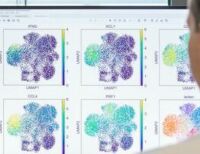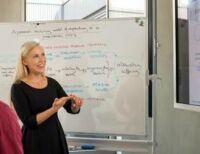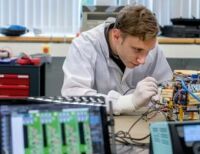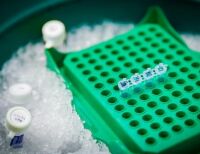The joint project also looked at the social and legal framework conditions.
In a social science analysis, the working group of Ruth Müller, Professor of Science and Technology Policy at the Munich Center for Technology in Society at TUM, investigated the possibilities and perceptions of genome editing applications in animals in a regional, rural context. In an exploratory study, interviews with farmers, focus groups with representatives of the general public and a workshop with scientists and breeders were conducted. The integration of a social science component into the research association also allows the exploration of social possibilities for genome editing applications in animal breeding in Bavaria. The study shows that the safety of genetic technology is no longer the focus for both farmers and the general public when they discuss whether and how genome editing might be used in animal breeding. Rather, the focus is on how agriculture should look in the future and the role that new technologies might play in strengthening local, ecological and animal-friendly agriculture in small and medium-sized enterprises. The general public is opposed to the use of genome editing in factory farming settings.
The accompanying legal research started off with the ECJ ruling of July 25, 2018, according to which genome-edited organisms are to be categorized as “genetically modified organisms” (GMOs) within the meaning of Directive 2001/18/EC. The implementation of scientific research results into agricultural practice as regards genome-edited animals is hardly realistic under the current GMO legislation, though. Prof. Hans-Georg Dederer (University of Passau) therefore proposes amendments to both Directive 2001/18/EC and Directive 2009/41/EC. The purpose of the amendments drawn up is to exclude genome-edited animals from the scope of application of GMO law insofar as the genetic modifications brought about by means of genome editing techniques could occur naturally or by means of classical animal breeding as well.
The FORTiGe research association with scientific participation of TUM, the Ludwig Maximilian University of Munich (LMU, Prof. Eckhard Wolf, Chair of Molecular Animal Breeding and Biotechnology) and the University of Passau (Prof. Hans-Georg Dederer, Chair of Constitutional and Administrative Law, Public International Law, European and International Economic Law) and with the participation of industry was funded by the Bavarian Research Foundation.
















